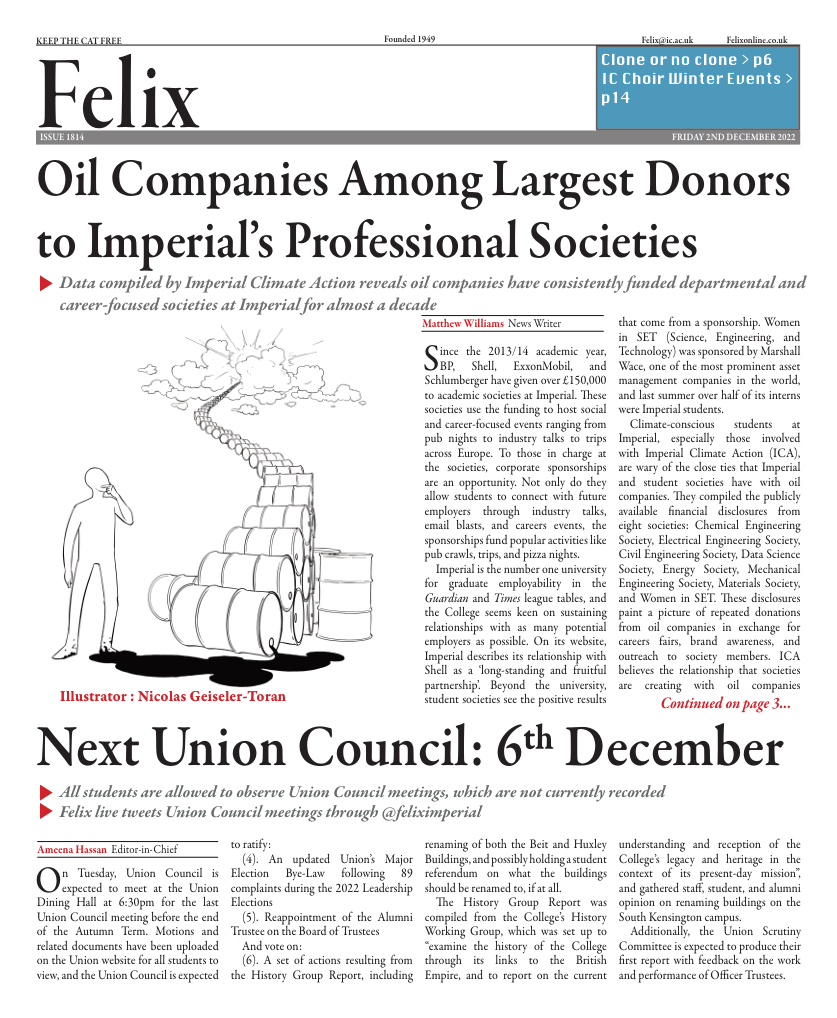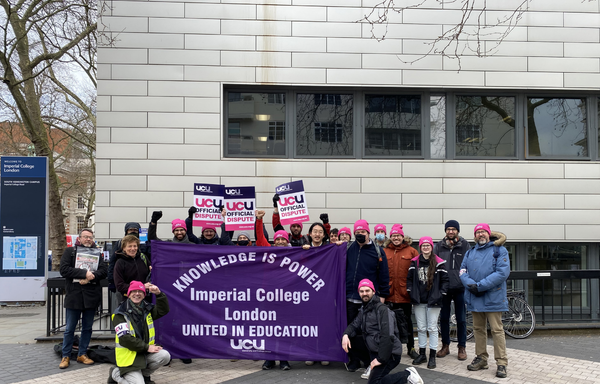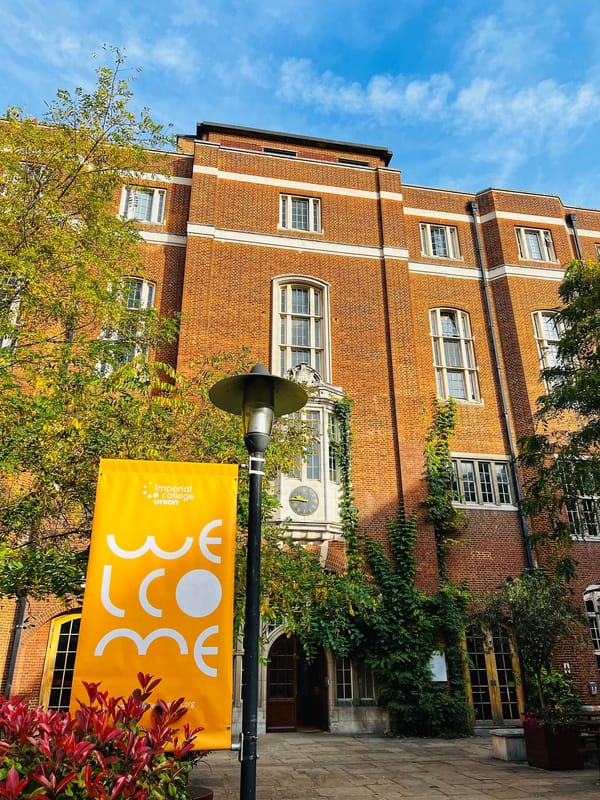Oil companies among largest donors to Imperial's professional societies
Data compiled by Imperial Climate Action reveals oil companies have consistently funded departmental and career-focused societies at Imperial for a decade

Since the 2013/14 academic year, BP, Shell, ExxonMobil, and Schlumberger have given over £150,000 to academic societies at Imperial. These societies use the funding to host social and career-focused events ranging from a pub night to industry talks to trips across Europe. To those in charge at the societies, corporate sponsorships are an opportunity. Not only do they allow students to connect with future employers through industry talks, email blasts, and careers events, the sponsorships fund popular activities like pub crawls, trips, and pizza nights.
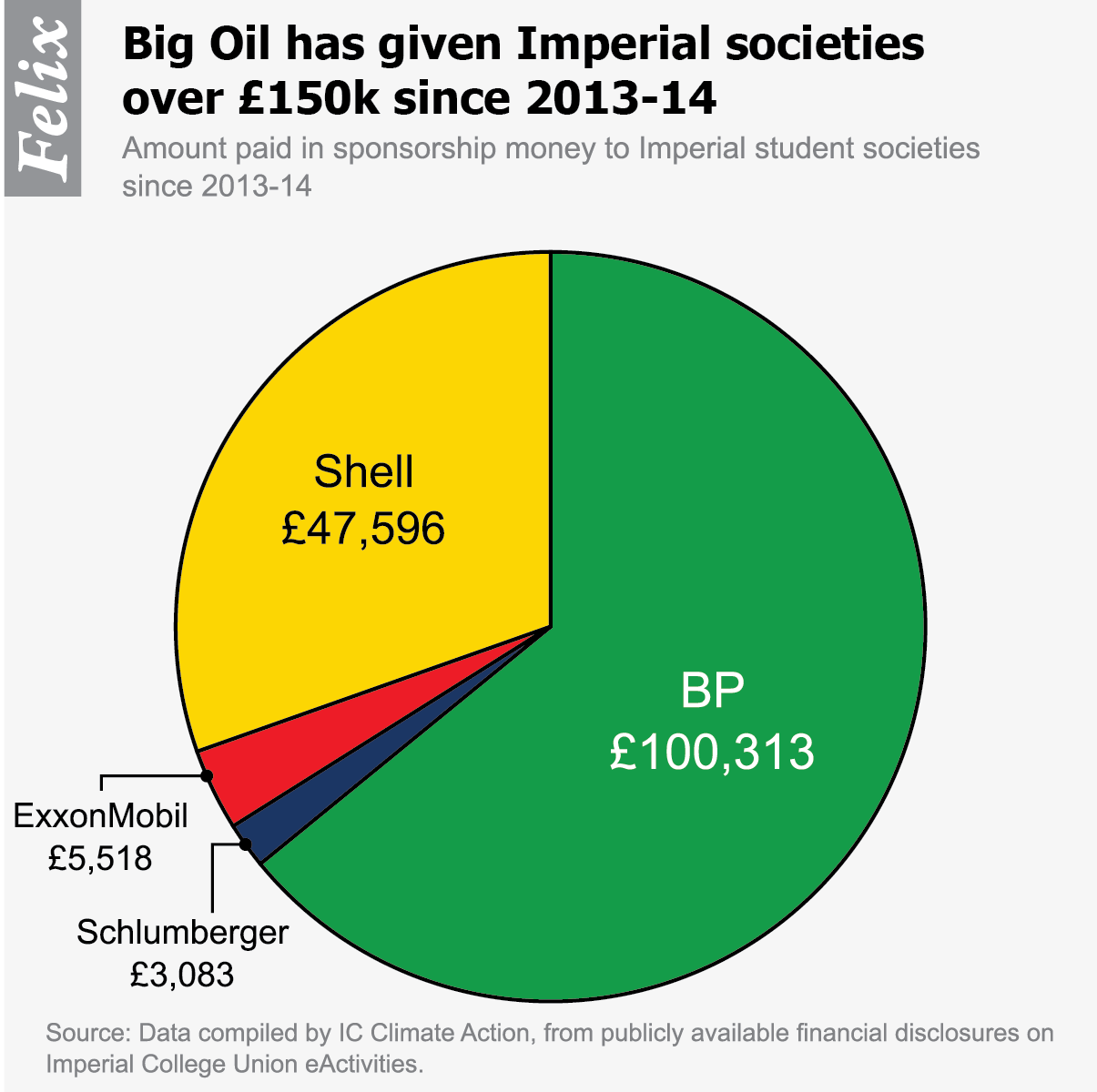
Imperial is the number one university for graduate employability in the Guardian and Times league tables, and the College seems keen on sustaining relationships with as many potential employers as possible. On its website, Imperial describes its relationship with Shell as a “long-standing and fruitful partnership”. Beyond the university, student societies see the positive results that come from a sponsorship. Women in SET (Science, Engineering, and Technology) was sponsored by Marshall Wace, one of the most prominent asset management companies in the world, and last summer over half of its interns were Imperial students.
Climate-conscious students at Imperial, especially those involved with Imperial Climate Action (ICA), are wary of the close ties that Imperial and student societies have with oil companies. They compiled the publicly available financial disclosures from eight societies: Chemical Engineering Society, Electrical Engineering Society, Civil Engineering Society, Data Science Society, Energy Society, Mechanical Engineering Society, Materials Society, and Women in SET. Those disclosures paint a picture of repeated donations from oil companies in exchange for careers fairs, brand awareness, and outreach to society members. ICA believe the relationship that societies are creating with oil companies “romanticises” oil and gas extraction.
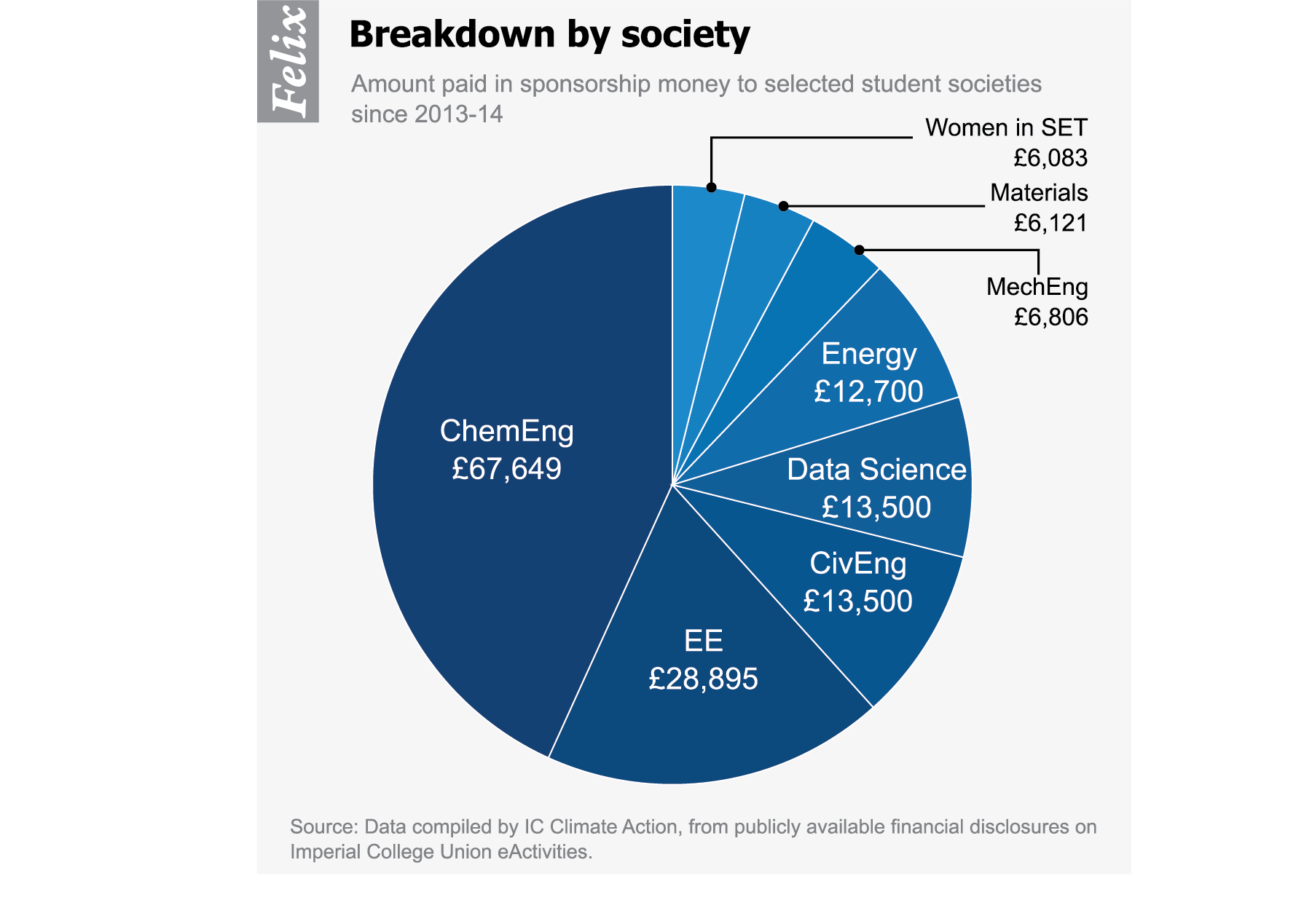
One EESoc Vice President, who spoke to Felix, does not see it that way. As they see it, “the society is the middleman—connecting students to careers. Our goal is to give them as many opportunities as possible”. Though the society has distanced itself from certain companies in the past due to differences in values, it has never fully turned down a collaboration. They say it is very possible for the society’s members to go on to a career in the oil industry and make change for the better.
Pete Knapp, environmental activist at ICA, disagrees: “You can’t change a fossil fuel company from the inside. It’s never worked in the past, and it never will. These companies are fundamentally built on destroying the environment for profit, using manipulation tactics... to seed doubt and fear of change.” Oil companies have a long history of climate denial and “greenwashing” that spans half a century and continues into the present day. Companies such as ExxonMobil have, in the past, downplayed the effects of extracting oil from the earth. As early as 1979, ExxonMobil’s own scientists warned that burning fossil fuels “will cause dramatic environmental effects”. “The potential problem is great and urgent”, they concluded. According to The Guardian, “instead of heeding the evidence of the research they were funding, major oil firms worked together to bury the findings and manufacture a counter narrative to undermine the growing scientific consensus around climate science.” As recently as 2020, Imperial researchers collaborated with researchers at ExxonMobil to create a membrane to refine oil more efficiently.
After a temporary dip in sponsorship during the pandemic, funding has bounced back rapidly over the last year. Women in SET has seen its number of sponsors double since the pandemic, and the society has no intention to stop expanding. The goal is to provide members with as many opportunities and contacts in as many industries as possible.
As societies emerge from the pandemic, once again with sponsorships aplenty, they must wrestle with the ethics of their decisions. While those at Imperial Climate Action are calling for the College and the student union to mandate ethical consideration before accepting sponsorship deals, leadership at these professional societies appear to take a different view. Their goal is to connect students to jobs and future success, not suppress those same opportunities.

